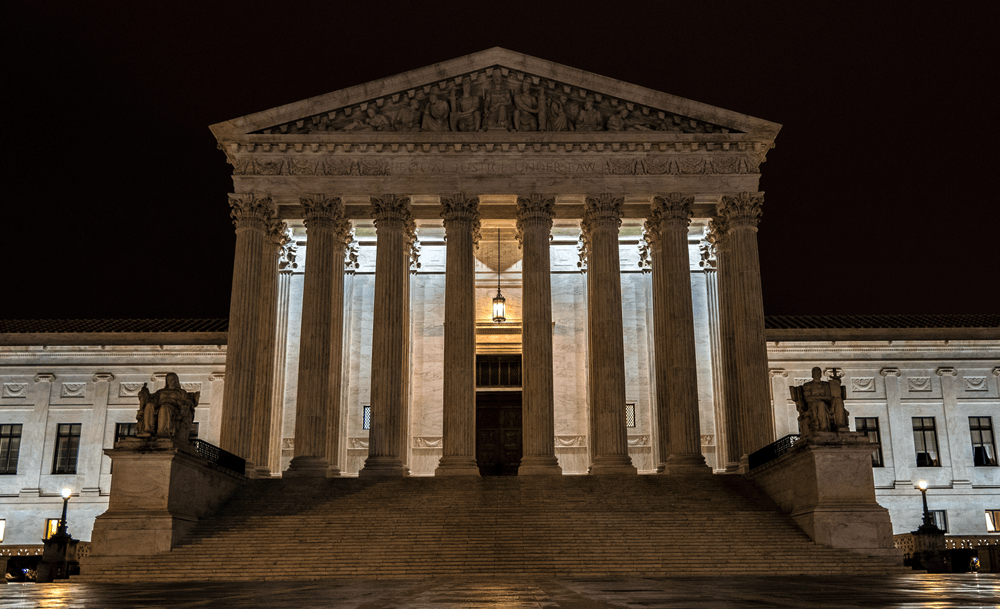Last week, the Department of Justice (DOJ) sent a letter to the Supreme Court alerting the Justices that it had provided the Court with incorrect information regarding how long certain noncitizens were held in detention. DOJ initially had provided this false information to the Supreme Court in 2002 for the case, Demore v Kim. The Court heavily relied on the misinformation provided by DOJ in holding that the immigration agencies may deny bond to immigrants subject to mandatory detention in removal proceedings. This extraordinary error has contributed to years of prolonged detention for thousands of immigrants, denying them access to the most basic due process of a bond hearing.
Back in 2003, the Court found, based on data provided by DOJ, that in cases where an individual was charged with removability on grounds that trigger mandatory detention under the immigration laws, the average detention period was 47 days where there is no appeal, with 15 percent of immigrants who appeal a deportation order being in detention for four and a half months. However, according to last week’s letter from Acting Solicitor General Ian Gershengorn, the actual average detention periods were much longer—in fact, more than three times longer than they had originally reported. The letter concludes by stating that, in light of this error, the Supreme Court may wish to “amend its opinion.”
Nancy Morawetz, co-director of the Immigrant Rights Clinic at the New York University School of Law, who worked on the Kim case, said the government’s admission to the Court wasn’t enough. Speaking to the Wall Street Journal, she explained, “It’s really outrageous. They say excise this sentence that relied on the wrong data but they’re not saying look at the result you got from it.” The case has led to immeasurable numbers of individuals being kept in prolonged detention, costing taxpayers billions despite the availability of a broad spectrum of alternatives to detention.
This admission by DOJ is especially important in light of the fact that the Supreme Court is scheduled this fall to hear arguments in Jennings v. Rodriguez, a new challenge to the prolonged detention of noncitizens in removal proceedings. At issue in that case is whether the government can keep a noncitizen who is fighting her deportation case locked up for however long the notoriously lengthy proceedings last, or whether she must receive a bond hearing after she has been detained for six months.
A bond hearing helps ensure that each person facing potential long term imprisonment is afforded a day in court—it allows an immigration judge to make an individualized decision about whether continued detention is necessary. Providing people this basic due process protection doesn’t prevent the government from seeking to deport those noncitizens it considers enforcement priorities. Instead, it ensures that our immigration courts operate within the bounds of the Constitution. Noncitizens held in remote detention centers are less likely to get legal help and successfully explain their cases to immigration judges. They may give up valid claims simply to avoid remaining locked up for months or even years while their immigration cases proceed through the courts.
Given the severity of detention and the constitutional implication of depriving people of their most fundamental liberty interest, there is no good reason to deny bond hearings. Rather, the government should settle Jennings v. Rodriguez and issue a uniform rule providing immigration judge bond hearings for all individuals locked up for six months or more. But if that doesn’t happen, hopefully, the Supreme Court will recognize that immigrants in prolonged detention deserve their day in court.
Photo by Stefano Cislaghi.
FILED UNDER: featured, Jennings v. Rodriguez, Supreme Court


